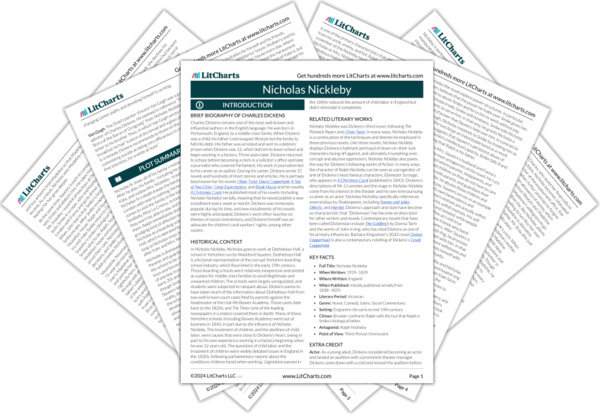One of Nicholas’s defining characteristics as a protagonist is that he seems to excel in every situation he finds himself. He’s not only honest and virtuous, but he seems to have talent in a variety of different areas and is a charismatic presence regardless of the circumstances. The audience’s reaction to him in the play makes it clear that that charisma is widely appreciated by a large group of people, not just his friends and those close to him.
